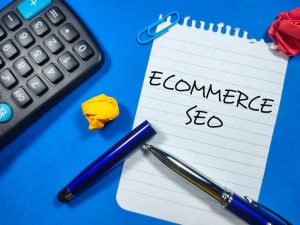Website builders have come a long way in the last few years, making it easier than ever to create a professional-looking and fully functional website without any coding knowledge. In 2023, there are numerous website builders to choose from, but we’ve narrowed it down to the top 5 for your convenience. In this comprehensive guide, we will explore the features, pricing, and benefits of these website builders, helping you find the perfect one for your needs.
Comparison Table:
| Website Builder | Ease of Use | Template Variety | Customization Options | E-commerce Features | Pricing (Starting From) |
|---|---|---|---|---|---|
| Wix | ★★★★★ | ★★★★★ | ★★★★★ | ★★★★☆ | $14/month |
| Squarespace | ★★★★☆ | ★★★★☆ | ★★★★☆ | ★★★★☆ | $12/month |
| Weebly | ★★★★★ | ★★★☆☆ | ★★★☆☆ | ★★★★★ | $6/month |
| Shopify | ★★★☆☆ | ★★★☆☆ | ★★★★☆ | ★★★★★ | $29/month |
| WordPress.com | ★★★★☆ | ★★★★★ | ★★★★★ | ★★★★☆ | $4/month |
-
Wix
Wix is a popular and versatile website builder that offers a powerful drag-and-drop editor, making it easy for beginners to create and customize their websites. With over 800 templates, Wix provides a wide variety of options for users to choose from. In addition, Wix’s App Market offers a vast selection of apps and integrations to help improve your site’s functionality.
Pros:
- Intuitive drag-and-drop editor
- Over 800 customizable templates
- Extensive app market
- Robust e-commerce features with the Wix Stores app
Cons:
- Limited flexibility for template switching
- Higher tier plans can be expensive
-
Squarespace
Squarespace is known for its sleek, professional-looking templates, which cater to a variety of industries. With its easy-to-use interface and robust design tools, Squarespace allows users to create visually stunning websites with minimal effort. While it may not be as feature-rich as Wix, Squarespace still offers solid e-commerce capabilities for small businesses.
Pros:
- High-quality templates with a focus on design
- Easy-to-use interface
- Built-in e-commerce features
- 24/7 customer support
Cons:
- Fewer templates and apps compared to Wix
- Limited customization options
-
Weebly
Weebly is a user-friendly website builder that offers a range of templates and an intuitive drag-and-drop editor. While it may not have as many customization options as Wix or Squarespace, Weebly stands out for its advanced e-commerce capabilities, making it an excellent choice for online stores.
Pros:
- Easy-to-use drag-and-drop editor
- E-commerce features with the Weebly App Center
- Affordable pricing plans
- Integrated marketing tools
Cons:
- Limited template variety
- Less customization options compared to competitors
-
Shopify
Shopify is a dedicated e-commerce platform that provides everything you need to create and run an online store. With a wide range of themes and apps, Shopify enables users to customize their store’s appearance and functionality. While it may not be the best choice for a simple blog or portfolio site, Shopify excels in the e-commerce sphere.
Shopify is a leading e-commerce platform that has made a name for itself by offering a comprehensive suite of tools and features to help businesses create and manage successful online stores. With a focus on ease of use and scalability, Shopify empowers entrepreneurs and businesses of all sizes to bring their products to a global market. In this guide, we will explore the pros and cons of using Shopify for your online store to help you decide if it’s the right fit for your needs.
Pros:
- Dedicated e-commerce platform: Shopify is specifically designed for e-commerce, ensuring that you have all the features and tools necessary to build and run a successful online store.
- Scalability: Shopify can handle the growth of your business, accommodating everything from a small store to a large enterprise.
- Wide range of themes: Choose from over 100 professionally designed themes to create a visually appealing and user-friendly store.
- Extensive app store: Shopify’s app store offers thousands of apps and integrations to help enhance your store’s functionality and streamline your operations.
- Powerful marketing tools: Shopify includes built-in marketing features like SEO optimization, email marketing, and social media integration, making it easy to promote your store and drive sales.
- 24/7 customer support: Shopify offers round-the-clock customer support via chat, email, and phone to help you resolve any issues that may arise.
Cons:
- Cost: Shopify’s pricing plans can be more expensive compared to other website builders, particularly for businesses with a high volume of sales due to transaction fees.
- Limited customization options: While Shopify offers a good selection of themes, its customization capabilities may not be as extensive as other website builders like Wix or WordPress.
- Not ideal for non-e-commerce sites: Shopify’s primary focus on e-commerce may not make it the best choice for creating simple blogs or portfolio websites.
- Learning curve: Although Shopify is user-friendly, there can be a learning curve for users who are new to e-commerce or less tech-savvy.
-
WordPress
WordPress.com is a versatile website builder that powers a significant portion of the web, catering to users with a wide variety of needs. Whether you’re looking to create a personal blog, a portfolio, or even an e-commerce store, WordPress.com offers a powerful set of tools and features that can help you build the website of your dreams. In this guide, we will discuss the pros and cons of using WordPress.com as your website builder to help you make an informed decision.
Pros:
- Customization options: WordPress.com offers an extensive array of themes and plugins, allowing for near-limitless customization options to create a truly unique website.
- Scalability: WordPress.com can accommodate websites of all sizes, from a simple blog to a complex e-commerce store, making it an excellent choice for future growth.
- Large user community: With a vast and active community, finding support, tutorials, and resources for WordPress.com is easy, helping you troubleshoot any issues and learn new techniques.
- Search engine optimization (SEO): WordPress.com has built-in SEO tools and a variety of plugins to help improve your website’s visibility in search engine results.
- Multilingual capabilities: WordPress.com supports a variety of languages, making it easier to create a website that caters to a global audience.
Cons:
- Learning curve: WordPress.com can be more complex than other website builders, requiring some time and effort to master its features and interface.
- Cost of premium features: Although WordPress.com offers a free plan, many essential features, plugins, and themes require a paid plan, which can become expensive.
- Limited e-commerce capabilities: While WordPress.com does support e-commerce through plugins like WooCommerce, it may not be as robust or user-friendly as dedicated e-commerce platforms like Shopify.
- Maintenance and updates: With WordPress.com, you’ll need to regularly update themes and plugins to ensure compatibility and security, which can be time-consuming.
- Customer support: Although there’s a large community to help you with any issues, WordPress.com’s official customer support can be less responsive than other website builders.
Conclusion:
Choosing the right website builder for your needs is crucial to the success of your online presence. In this guide, we have discussed the top 5 website builders of 2023, highlighting their features, benefits, and drawbacks. When making your decision, it’s essential to consider the primary purpose of your website, your technical expertise, and your budget.
For users looking for a versatile and user-friendly platform, Wix and Weebly offer intuitive drag-and-drop editors and a wide range of templates. Squarespace stands out for its visually appealing templates and focus on design, while Shopify is a powerhouse for e-commerce stores, providing a comprehensive suite of tools to help you succeed in online retail. Finally, WordPress.com offers unparalleled flexibility and customization options, catering to users who are willing to invest time in mastering its features.
By comparing the pros and cons of each website builder and evaluating your specific needs, you can find the perfect platform to create a website that looks professional, functions seamlessly, and helps you achieve your online goals.






